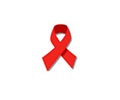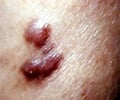A report by the United Nations Children's Fund (UNICEF) found that at least 2,10,000 children died from AIDS-related illnesses in 2012.

"This report reminds us that an AIDS-free generation is one in which all children are born free of HIV and remain so. This means access to treatment for all children living with HIV," Michel Sidibe, executive director, UNAIDS said.
"It also reminds us that women's health and well being should be at the centre of the AIDS response," he added.
According to the report, the Acquired Immunodeficiency Syndrome (AIDS)-related deaths among adolescents between the age group of 10 and 19 increased by 50 percent between 2005 and 2012 globally, rising from 71,000 to 1.1 lakh.
It highlights the need for increased global and national efforts to address HIV and AIDS among adolescents.
As per the report, the estimated HIV prevalence among adults, aged between 15 and 49 in 2012 was 0.3 percent with 49,000 pregnant women living with it in India.
"It's a matter of reaching the most vulnerable adolescents with effective programmes," he added.
These are in addition to investments in other sectors such as education, social protection and welfare and strengthening health systems.
However, the report also states in contrast to adolescents, more than 8.5 lakh new childhood infections were averted between 2005 and 2012, showing progress in preventing mother-to-child transmission of the virus.
"Some 2.6 lakh children were newly infected with HIV in 2012, compared to 5.4 lakh in 2005," the report says.
Source-IANS
 MEDINDIA
MEDINDIA




 Email
Email



